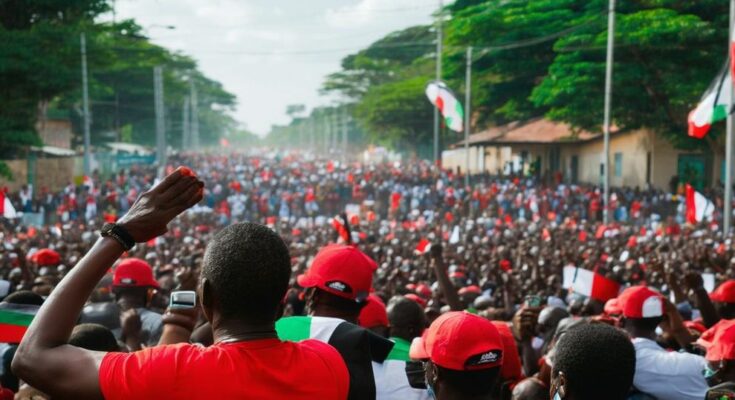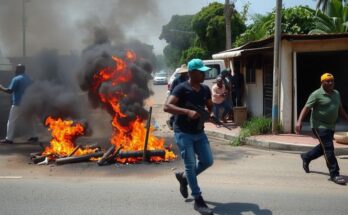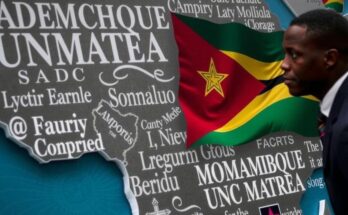In Mozambique’s recent elections, the ruling party Frelimo, represented by Daniel Chapo, won amid allegations of electoral rigging and violence. Chapo, who received 71% of the votes, replaces Filipe Nyusi, while opposition leader Venancio Mondlane, garnering 20% of the votes, disputes the election’s legitimacy and has called for protests. The atmosphere in Maputo is tense, with opposition claims supported by criticisms from international observers regarding the electoral process.
In the recent elections held in Mozambique, the ruling party, Frelimo, has successfully maintained its dominance by securing a significant victory, as announced by the election commission. Daniel Chapo, a lesser-known candidate representing Frelimo, has been elected to succeed Filipe Nyusi, who has completed two terms in office. At the age of 47, Chapo stands out as the first president of Mozambique born after the nation’s independence in 1975, having garnered approximately 71% of the votes. His main opponent, Venancio Mondlane, received around 20% of the votes and has raised serious concerns regarding the legitimacy of the electoral process, alleging rigging and political violence against opposition supporters. The electoral process has faced criticism due to various reports of corruption and violence, including the tragic killing of some opposition figures, which has led to widespread protests. In response to the troubling outcomes, Mondlane has called for a national strike to protest the alleged electoral fraud and to honor the deceased party officials. The atmosphere in the capital, Maputo, remains highly tense, with many businesses closed and the streets largely deserted. Additionally, international observers, including the European Union, have flagged potential irregularities in the vote counting process, stating that there may have been unjustified alterations to the election results. These issues have invoked skepticism about the overall transparency and fairness of the elections, further complicating Mozambique’s political landscape.
Mozambique has a complex political history marked by a ruling party control since its independence from Portuguese colonial rule in 1975. Frelimo, the ruling party, has been in power for nearly five decades, often accused of suppressing opposition and maintaining power through controversial means. The recent elections have been particularly divisive, characterized by violence and allegations of electoral malpractices. The rise of Daniel Chapo as a candidate appears to be an attempt by Frelimo to present a face of change amid a call for greater accountability and transparency. However, the environment leading up to and following the elections has been fraught with turmoil, raising questions about the future of democratic governance in Mozambique.
In conclusion, the recent presidential elections in Mozambique have reinforced Frelimo’s long-standing grip on power while simultaneously intensifying the political turmoil in the country. Daniel Chapo’s victory, despite significant opposition claims of electoral fraud and violence against party supporters, highlights the ongoing challenges to democratic processes in the nation. This situation, compounded by criticism from international observers, suggests that Mozambique’s political future may remain uncertain as calls for accountability and reform become more pronounced among its citizens.
Original Source: www.bbc.com




